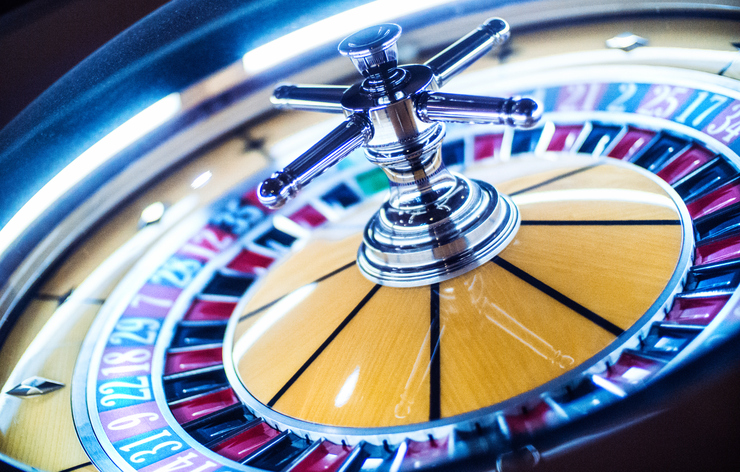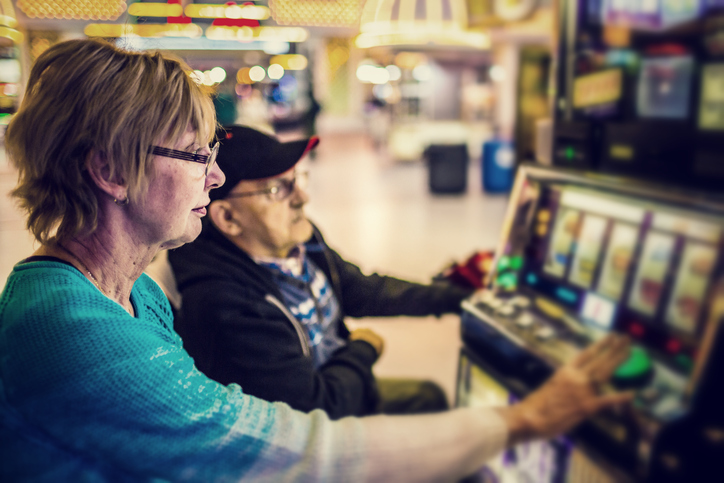 People who experience gambling addiction may be unable to control the impulse to gamble, even when they know their actions are hurting themselves and others. Individuals with this addiction may feel an urge to gamble in spite of their desire to quit.
People who experience gambling addiction may be unable to control the impulse to gamble, even when they know their actions are hurting themselves and others. Individuals with this addiction may feel an urge to gamble in spite of their desire to quit.
- What Is Gambling Addiction?
- Warning Signs of Gambling Addiction
- What Causes Gambling Addiction?
- Types of Gamblers
- How Common is Gambling Addiction?
- Assessment Tools
What Is Gambling Addiction?
Gambling in and of itself is not necessarily a problem. Like drinking alcohol, gambling in moderation does not lead to addiction for most people. It becomes an issue when someone feels compelled to gamble despite any consequences. The condition can be difficult to manage due to the accessibility of gambling, particularly online gambling. Although some gamblers prefer one method over another, all types can be addictive.
Research shows gambling and drugs impact the reward centers of the brain in similar ways. This may be why many people with gambling addiction report a “high” during a game. The Diagnostic and Statistical Manual of Mental Disorders (DSM-5) puts gambling addiction in the same category as substance abuse diagnoses.
Warning Signs of Gambling Addiction
Like most addictions, gambling addiction tends to thrive in secrecy. Loved ones of people experiencing gambling addiction might not be aware there is a problem until it has spiraled out of control.
The DSM-5 lists nine warning signs of gambling addiction. If someone shows at least four of these signs over the course of a year, they may have a gambling problem:
- Persistent thoughts about gambling, whether it be reliving past wins or planning the next gambling session
- Using gambling to escape from problems or distress
- A need to gamble with increasing amounts of money to get the same thrill
- Lying about the extent of gambling activities
- Using gambling to recover money from previous losses (called “chasing one’s losses”)
- Repeated attempts to control one’s gambling or stop altogether
- Restlessness when trying to cut back on gambling
- Ignoring family, work, and other responsibilities to gamble
- Borrowing money from others to relieve debts caused by gambling
If you think you might have a gambling problem, you can contact a mental health professional to receive an assessment of your condition or get more information.
What Causes Gambling Addiction?
There is no known specific cause of gambling addiction. Biological and environmental factors can both influence its development.
 Researchers found there are significant similarities between gambling addiction and substance abuse problems. Much like with drug use, gambling activates the brain’s reward centers. The brain releases dopamine in high doses, providing the gambler with a strong sense of satisfaction.
Researchers found there are significant similarities between gambling addiction and substance abuse problems. Much like with drug use, gambling activates the brain’s reward centers. The brain releases dopamine in high doses, providing the gambler with a strong sense of satisfaction.
Studies have shown people who experience gambling addiction have lower levels of norepinephrine. The brain releases norepinephrine when we experience feelings of arousal and thrill. The rush that comes with gambling may supplement biochemical needs.
Another mental health condition may influence gambling addiction. A person experiencing depression, for example, might turn to gambling to ease feelings of sadness and emptiness. People with borderline personality traits might engage in impulsive gambling. Alcohol and drug abuse is common among people with gambling addictions. Treatments for gambling addiction may differ depending on a person’s other diagnoses.
Types of Gamblers
According to the Arizona Council on Compulsive Gambling, people who gamble compulsively can be divided into two main types:
Action Gamblers
People who fall into this category often start gambling in adolescence. It may take a few years for action gamblers to become addicted. Once that happens, it can take 10 to 30 years before they get treatment.
Action gamblers tend to have low self-esteem. They may hide their insecurities with sociable and overconfident behavior. They often feel “high” while gambling. Action gamblers usually prefer games of skill like craps and poker, believing they have a system to beat the game. They are unlikely to quit gambling unless a trained professional helps them confront their underlying issues.
Escape Gamblers
People who fall into this category often start when they are 30 years or older. They have often led productive prior to developing an addiction. They usually turn to gambling after experiencing loss, abuse, and/or trauma. These people usually gamble to numb themselves to pain. If they are abuse survivors, they are likely seeking a sense of empowerment as well.
Escape gamblers usually prefer luck-based games such as slot machines and bingo. They can develop an addiction within months. Escape gamblers usually seek help within the first two to three years of addiction. They are more likely to seek help and quit gambling permanently.
How Common Is Gambling Addiction?
According to an article in Scientific American (2013), around 2 million Americans have a gambling addiction. Around 1 in 165 men will experience gambling addiction in their lifetimes compared to 1 in 500 women. An estimated 98% of action gamblers are men. Escape gamblers are more likely to be women.
 The lifetime prevalence rates differ among ethnicities. African Americans have a 0.9% chance of developing a gambling addiction at some point. This number is over twice the rate among whites (0.4%) and triple the rate among Hispanics (0.3%).
The lifetime prevalence rates differ among ethnicities. African Americans have a 0.9% chance of developing a gambling addiction at some point. This number is over twice the rate among whites (0.4%) and triple the rate among Hispanics (0.3%).
Gambling addiction is typically experienced by younger to middle-aged adults. Those with depression, bipolar, or substance-related concerns are at increased risk for gambling addiction. Additionally, a person's risk for developing a gambling addiction is greater if their parents had issues with gambling.
Assessment Tools
If you are concerned about a loved one’s gambling (or your own habits), these resources can help you assess the severity of the situation.
- Gam-Anon’s Website: Informal assessment tools found on the Gam-Anon website. It can help family and friends answer questions like “Are you living with a compulsive gambler?”
- The Brief Biosocial Gambling Screen: This three-item survey can help you assess whether you should consider seeking professional help. This tool is based on the criteria found in the fourth edition of the DSM.
- NORC Diagnostic Screen for Gambling Problems Self-administered (NODS-SA): This assessment can be self-administered. It can help you determine if your gambling meets the criteria for a behavioral addiction.
If you or a loved one has a gambling addiction, therapy can help. You can find a therapist in your area who specializes in addiction. It is never too late to get treatment.
References:
- Common Types of Gambling. (n.d.). California Council on Problem Gambling. Retrieved March 1, 2015, from http://www.calpg.org/common-types-of-gambling
- Compulsive Gambling. (2014, February 12). Mayo Clinic. Retrieved February 26, 2015, from http://www.mayoclinic.org/diseases-conditions/compulsive-gambling/basics/definition/con-20023242
- DSM-5 Diagnostic Criteria: Gambling Disorder. (n.d.). National Council on Problem Gambling. Retrieved from http://www.ncpgambling.org/wp-content/uploads/2014/08/DSM-5-Diagnostic-Criteria-Gambling-Disorder.pdf
- Highlights of Changes from DSM-IV-TR to DSM-5. (n.d.). American Psychiatric Association DSM-5 Development. Retrieved from http://www.dsm5.org/Documents/changes%20from%20dsm-iv-tr%20to%20dsm-5.pdf
- Jabr, F. (2013, October 15). How the brain gets addicted to gambling. Scientific American. Retrieved from http://www.scientificamerican.com/article/how-the-brain-gets-addicted-to-gambling/?page=3
- Jazaeri, S. A., & Bin Habil, M. H. (2012). Reviewing Two Types of Addiction – pathological gambling and substance use. Indian Journal of Psychological Medicine, 34(1), 5-11. doi:10.4103/0253-7176.96147
- Screening Tools. (n.d.). National Council on Problem Gambling. Retrieved from http://www.ncpgambling.org/help-treatment/screening-tools
- Stages and warning signs of compulsive gambling. (n.d.). Florida Counseling on Compulsive Gambling, Inc. Retrieved from http://gamblinghelp.org/pages/about-compulsive-gambling/stages-and-warning-signs.php
- Substance-related and Addictive Disorders. (n.d.). American Psychiatric Association DSM-5 Development. Retrieved from http://www.dsm5.org/Documents/Substance%20Use%20Disorder%20Fact%20Sheet.pdf
- Types of Gamblers. (n.d.). Arizona Council on Compulsive Gambling. Retrieved from http://www.azccg.org/Types_of_Gamblers.html

